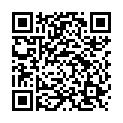|
|
|
| Module code: BAITM-520 |
|
4V (4 hours per week) |
|
5 |
| Semester: 5 |
| Mandatory course: yes |
Language of instruction:
German |
Assessment:
Written examination
[updated 21.03.2010]
|
BAITM-520 International Tourism-Management, Bachelor, ASPO 01.10.2008
, semester 5, mandatory course
|
60 class hours (= 45 clock hours) over a 15-week period.
The total student study time is 150 hours (equivalent to 5 ECTS credits).
There are therefore 105 hours available for class preparation and follow-up work and exam preparation.
|
Recommended prerequisites (modules):
BAITM-110 Fundamantals of business administration and tourism management
BAITM-120 Microeconomics
BAITM-240 Statistics and market research
BAITM-320 Management in the tourism industry
BAITM-480
[updated 21.03.2010]
|
Recommended as prerequisite for:
|
Module coordinator:
Prof. Dr. Ralf Rockenbauch |
Lecturer:
Prof. Dr. Ralf Rockenbauch
[updated 21.03.2010]
|
Learning outcomes:
- Basic understanding of modern theories of consumption in the context of tourism, mobility and transport
- Basic appreciation of the principles of product management for mobility and transport service providers
- Theoretical understanding of traffic flow simulations (creation, distribution and allocation of traffic, and selection of means of transport); strategic deployment of marketing instruments by mobility and transport service providers
- Structure and adaptability of international mobility consulting services
[updated 21.03.2010]
|
Module content:
- Principles of modern theories of consumption in tourism and transport
- Product management for mobility and transport service providers
- Traffic flow modelling (creation, distribution and allocation of traffic, and selection of means of transport)
- Strategic marketing for mobility and transport service providers
- Marketing mix instruments (product, price, communications, and distribution policies) in an inter- and intra-modal context
[updated 21.03.2010]
|
Teaching methods/Media:
- Lecture and discussions
- Case studies
[updated 21.03.2010]
|
Recommended or required reading:
- Diederich, H., Verkehrsbetriebslehre, Gabler, Wiesbaden, 1977
- Meffert, H. (Hrsg.), Verkehrsdienstleistungsmarketing, Gabler, Wiesbaden, 2000
- Mobilitätsberatung – Neue Lösungsstrategien im Konfliktfeld Verkehr, Tagungsband zur Mobilitätsberaterkonferenz 1994, Graz, 1994
- Rockenbauch, Ralf, Verkehrskonzeptionen für die Zukunft unter besonderer Berücksichtigung des Fahrradverkehrs – Eine ökonomisch-politische Analyse, Lang, Frankfurt, 1996
- Sterzenbach, R., Conrady, R., Luftverkehr, 3. Auflage, Oldenbourg, München, 2003
[updated 21.03.2010]
|


